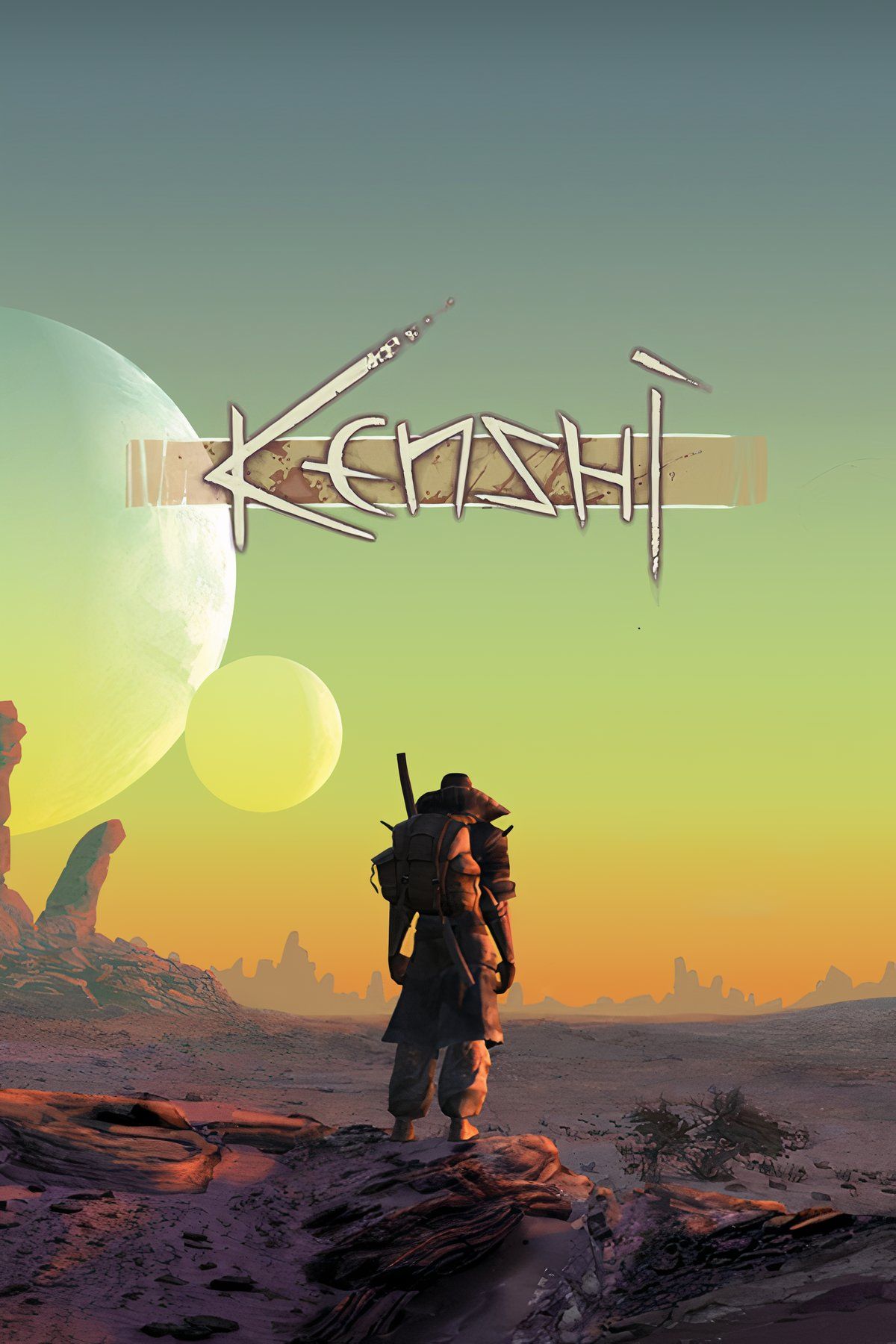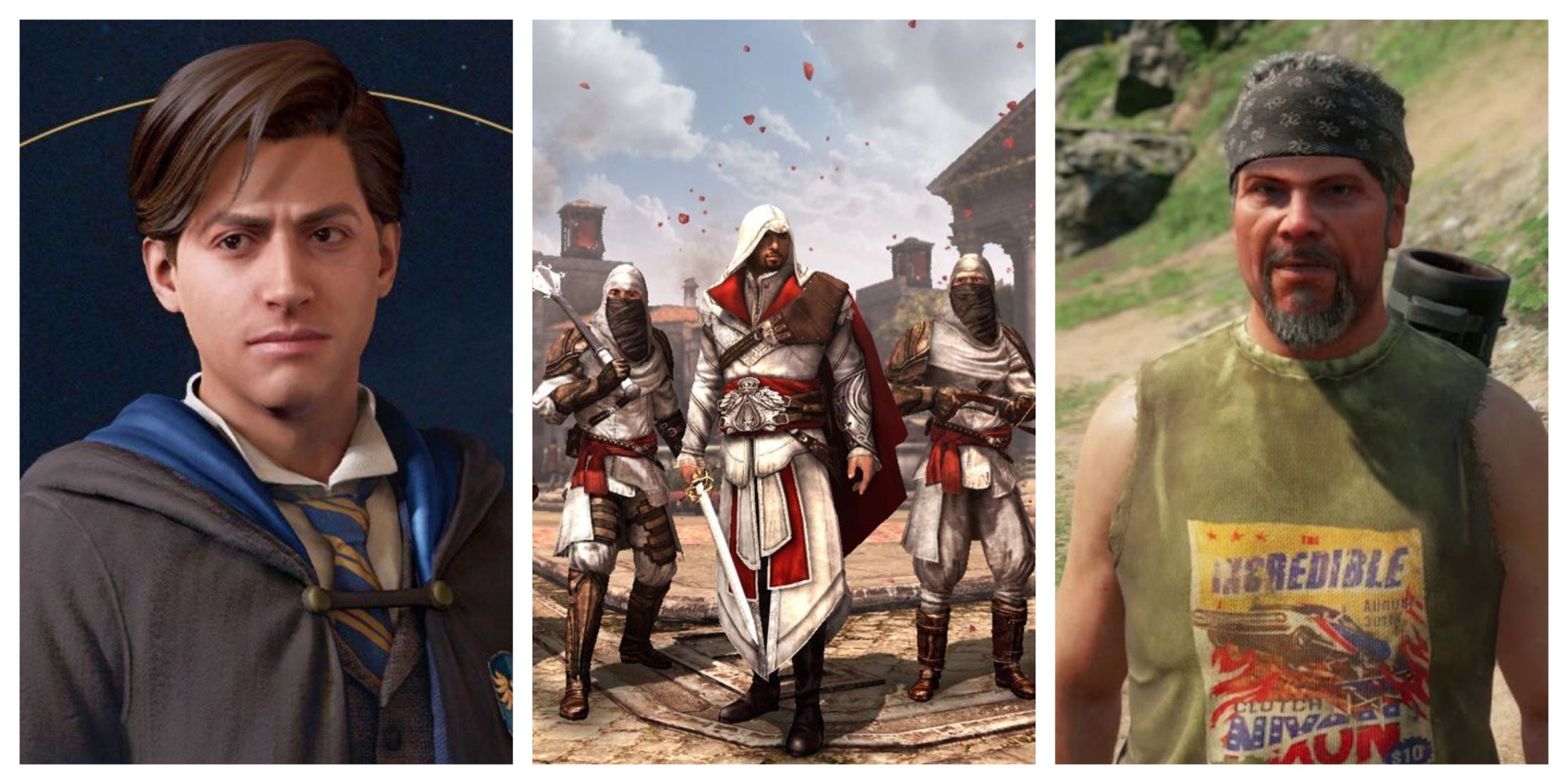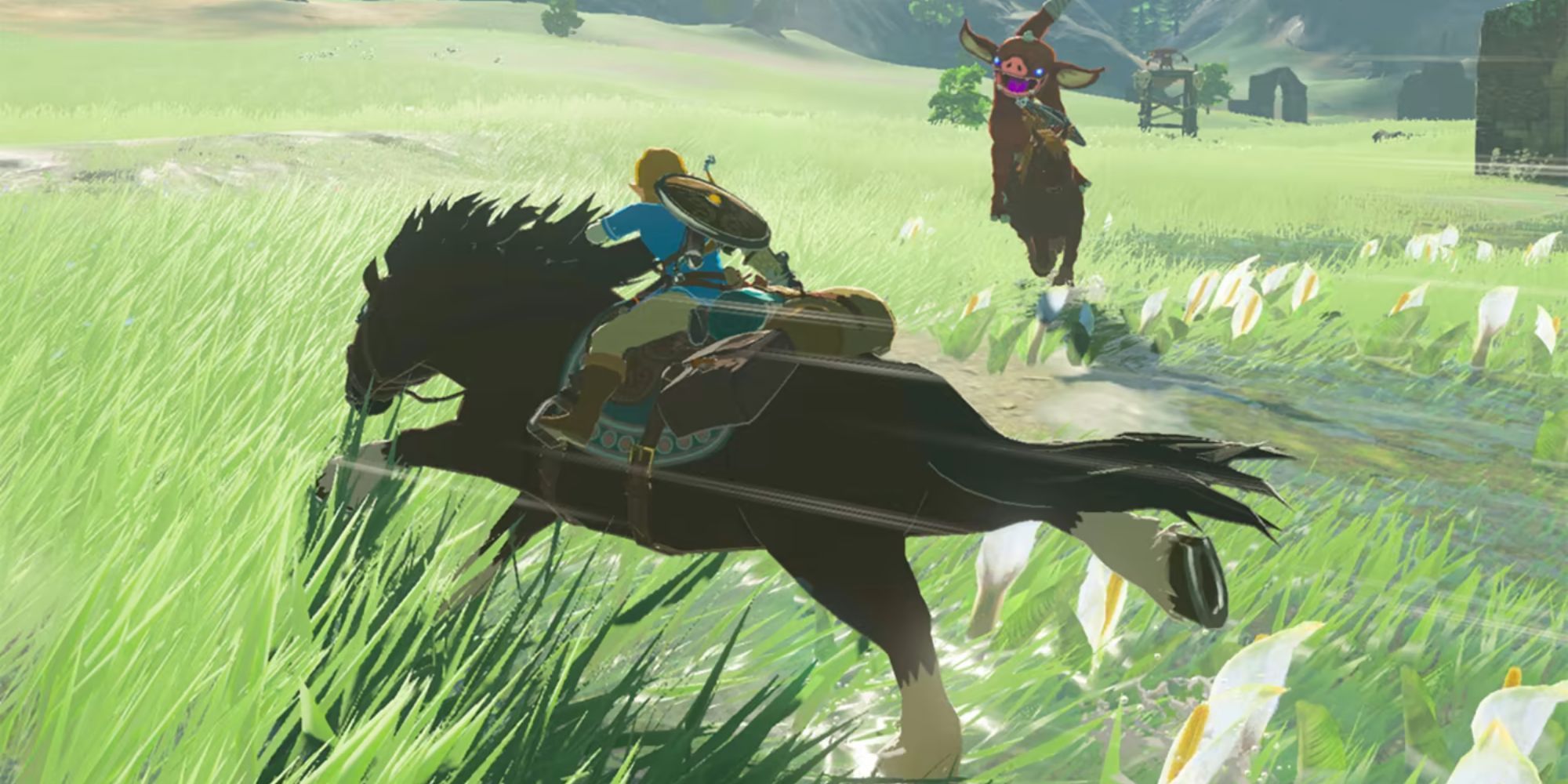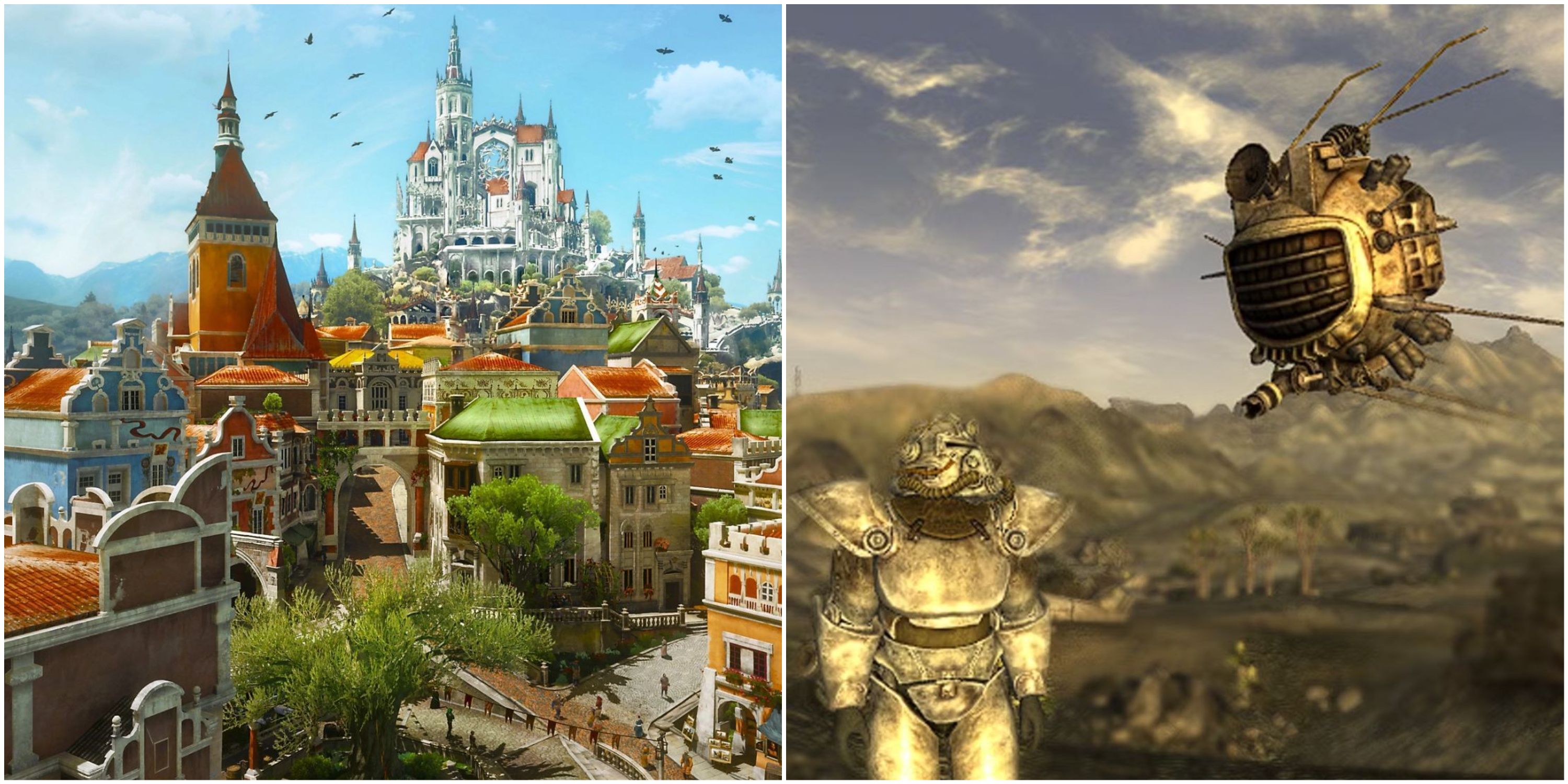
Most open-world games want players to save the day. Help a village, restore balance, rebuild what’s broken. But there’s a special kind of thrill in being the reason the world goes downhill. These aren’t games where the hero rides off into the sunset with a medal. These are the ones where players light the match and walk away from the fire. Whether through moral decay, widespread infection, systemic chaos, or literal bloodshed, these games let the world rot, and let players feel responsible for it.

Related
6 Best Open-World Games With Recruitable Party Members
From Assassin’s Creed to Saints Row, experience the strength of numbers with recruitable party members in these action-packed open-world titles.
Some of them are quiet and insidious about it. Others wear their destruction on their sleeves. Either way, the best part is seeing just how far the rot can spread.
The town in Pathologic 2 is already dying when players arrive. But it’s the kind of place where trying to help often makes things worse, and doing nothing lets the rot settle in deeper. Playing as the Haruspex, a surgeon returning home, players are tasked with stopping a plague, feeding a starving population, maintaining their own body, and managing the slowly collapsing trust of each district. It’s impossible to save everything. The town demands sacrifice, and it’s usually someone else who pays for it.
What makes corruption in Pathologic 2 feel so brutal is that it’s never a dramatic explosion or sudden betrayal. It’s mold creeping under floorboards. It’s choosing to steal a loaf of bread from a dying man because there’s someone more important to feed. Districts fall into ruin and stay that way for the rest of the story. The NPCs vanish, streets empty out, and entire communities become ghost towns. This isn’t an open world that resets when players fail; it decays in real time, and it never forgets.
The Magalan of ELEX 2 isn’t exactly pristine when the story starts. But players can absolutely push it into deeper chaos if they decide to be selfish, manipulative, or just plain power-hungry. Whether it’s convincing factions to turn on each other, feeding cultish ideologies, or reintroducing the mind-warping Elex substance into society, every choice has weight. And not the kind that leads to redemption arcs. The kind that breaks down diplomacy and lets monsters take over.
What makes ELEX 2 stand out is that it doesn’t force any one moral framework. The world reacts to apathy the same way it reacts to cruelty: it deteriorates. Towns lose their leaders. Followers become zealots. Entire regions become more dangerous to travel through depending on how much instability players stir up. It’s an RPG where players aren’t asked to restore order but are instead offered a tempting chance to reshape the world into something colder and crueler, and then live long enough to see it suffer.
Gothic 2 may not seem like a corrupt-the-world kind of RPG at first glance. But the more players dig into it, the more they realize how much of the balance hinges on decisions that can spiral out of control. Joining the wrong faction, getting involved in shady power plays, or taking out certain NPCs too early can destabilize towns, unravel relationships, and leave the world worse than it was.
4:39

Related
8 Open-World Games Where Exploration Is Exhausting, Ranked
These open-world games are a blast to play, but trying to explore the map in full can leave players weary.
What really adds to the feeling of corrosion is how NPCs respond to all of it. They remember slights, react to broken promises, and pass rumors like wildfire. Some questlines straight up lock if players gain a bad reputation, while others flourish if they embrace underhanded tactics. Even the city of Khorinis can start to feel tense and hostile if players push things far enough. There’s no karma meter, no good-versus-evil bar, just a world that reflects the mess that players create in quiet, spiteful detail.
Kenshi is the kind of open-world game where corruption isn’t some binary choice between good and evil. It’s a slow, methodical dismantling of power structures. Players start as nobodies in a bleak, post-apocalyptic desert, but they can build entire empires, enslave populations, wipe out noble houses, and even raze entire towns to the ground. If a faction offends them, they can be erased from the map.
Corrupting the world in Kenshi isn’t just about violence. It’s systemic. Recruiting escaped slaves and sending them back to conquer their former masters, establishing narcotic empires, or manipulating neighboring powers into war; all of it’s possible. And permanent. There’s no reset button. If players decide to torch a town, it stays burned. Characters die for good, economies collapse, and maps become littered with the ruins of what used to be. It’s one of the only games where corruption doesn’t just look dramatic—it feels like rewriting history.
Players don’t get much more corrupting than literally being the Blacklight Virus. In Prototype, Alex Mercer is less a hero and more a biological apocalypse with a hoodie. The open world of Manhattan becomes a personal playground for mayhem, where civilians are biomass, and tanks are chew toys. As the infection spreads, the city slowly warps. People transform. Military patrols increase. Entire zones fall into chaotic red zones filled with spires of muscle and flesh.

Related
8 Open-World Games Where Players Can Be Total Jerks
As they roam these open worlds, players can choose to be the worst person possible to the NPCs they encounter.
What’s interesting is how Prototype doesn’t even try to hide what it is. It hands players the power to destroy, consume, and evolve without pretending there’s a noble goal. Even the few characters who try to stop Alex are portrayed as minor obstacles rather than moral roadblocks. And by the time the city looks like a war-torn organ farm, players know exactly who to thank. There’s no balance, no morality check, just escalation. Beautiful, brutal escalation.
There’s something almost academic about the way Fallout: New Vegas lets players corrupt the world. It’s not just about nuking towns or stealing water. It’s about dismantling ideologies. Whether siding with Caesar’s Legion to introduce slavery and violence into the Mojave, betraying the NCR for personal gain, or going full autocrat with Mr. House’s vision of a technocratic dictatorship, every choice reshapes the region’s future in a way that feels plausible.
The genius of New Vegas is how easy it is to rationalize it all. Every faction is flawed. Every utopia has rot beneath the surface. So when players start playing factions against each other, toppling regimes, or installing their own puppet government, it doesn’t feel like a betrayal. It feels like politics. But the aftermath is where the corruption truly kicks in. Vegas might be free, but its streets echo with gunfire. The Legion might win, but its version of peace is paved with crucifixions. Whatever the choice, the corruption lingers long after the credits roll.
Dr. Jonathan Reid is supposed to be the cure. But in Vampyr, every noble intention is undercut by bloodlust. Players can choose to keep their humanity, but the real meat of the game lies in giving in. Feeding on civilians gives Reid immense power but causes entire districts to collapse into chaos. NPCs die off. Crime surges. The plague spreads faster. London stops feeling like a city and starts resembling a haunted graveyard.
What makes corruption so intimate in Vampyr is how personal every decision is. Every NPC has a name, a backstory, and ties to others. Killing one person isn’t just a stat change; it sends shockwaves. Families mourn. Clinics shut down. The game doesn’t just let players destroy the world. It makes them talk to it first, learn it, and care about it. Then it lets them ruin it for a few stat boosts. And that’s what makes it sting.

More
8 Open-World Games With The Best DLCs, Ranked
Not all DLCs are substantive, but these games have DLC that rivals the main game in playability.